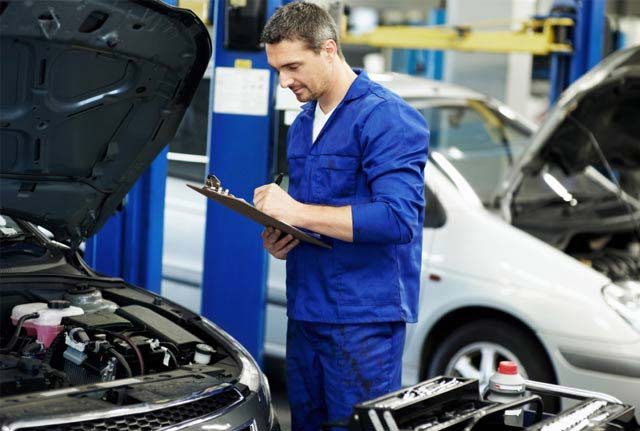All Categories
Featured

In today's lorries, electrical systems are important to almost every element of the driving experience. From powering lights and infomercial systems to controlling sophisticated vehicle driver help modern technologies, electric troubles can substantially impact car efficiency. Automobile repair shops utilize different diagnostic techniques to quickly and properly identify problems with these systems. Right here's a much deeper check into how modern-day automobile service center detect electrical issues.
- Using OBD-II Scanners for First Medical Diagnosis. One of the very first devices technicians make use of when diagnosing electrical problems is the OBD-II (On-Board Diagnostics) scanner. This gadget attaches to an automobile's computer system via a conventional analysis port. It retrieves and reads difficulty codes created by the automobile's onboard computer, which checks several electrical elements like the alternator, sensors, and circuitry.
These diagnostic trouble codes (DTCs) offer a clear indicator of where the electrical problem might be. A code suggesting a damaged sensing unit can assist service technicians focus on details elements, such as the oxygen sensing unit or wheel speed sensors, without having to check the entire automobile. This tool rates up the medical diagnosis and helps technicians identify the problem much more successfully.
- Visual Assessments for Obvious Issues. After scanning for codes, a professional will carry out an aesthetic evaluation of the lorry's electrical components. Service technicians look for loosened links, frayed wires, and any kind of signs of rust, as these are typical wrongdoers of electric malfunctions.
Since a blown fuse can protect against a system from operating properly,Fuses and relays are likewise inspected. If a fuse is found to be blown, it's typically an indication of a hidden electric problem that requires more examination.
- Battery and Billing System Tests. The battery and charging system are main to the vehicle's electrical performance, and failures in these locations can bring about a range of issues. Car repair shops will execute specific examinations to make certain the battery is billed and the generator is working properly. Service technicians make use of a multimeter to measure the battery's voltage. A fully charged battery should check out around 12.6 volts when the vehicle is off, and it must stay around 13.7 to 14.7 volts when the engine is running, suggesting the generator is charging the battery.
If the battery or generator is malfunctioning, it can trigger electric failures in other systems. A failing alternator may not supply enough power to the engine control components, leading to erratic behavior or delaying. Technicians will fix the generator or change or battery as needed.
- Circuit Screening for Power Flow Concerns. Electrical issues in cars usually stem from problems within the circuits that power various parts. Circuit screening helps specialists determine whether electric signals are being sent correctly through wiring and adapters.
For example, if the headlights are malfunctioning, professionals can examine the circuit supplying power to the fronts lights and trace the problem back to a faulty wire, a poor connection, or a malfunctioning button. This approach permits even more precise diagnosis and repair.
- Looking for Software Program or Control Module Issues. Modern lorries count heavily on software program and control modules to take care of numerous electric systems, including engine management, safety features, and infotainment systems. If there's a concern with a details system, maybe associated with software application or firmware pests. Car service center typically have the capability to look for and solve software-related issues.

Using manufacturer-specific diagnostic tools, service technicians can look for software updates, perform resets, or reprogram control modules to deal with the concern. As an example, if a vehicle's adaptive cruise control system isn't functioning, it could be because of a software program glitch that requires an update rather than a hardware failing.
- Advanced Screening for Hybrid and Electric Vehicles. For hybrid and electric cars, electrical diagnostics require specific tools as a result of the intricacy of their high-voltage systems. These cars are outfitted with powerful battery systems and electrical drive motors, and fixing these parts needs high-level proficiency. Specialists make use of specific tools to safely examine the high-voltage battery, inverter, and electric motors. These tools can inspect the battery's state of charge, voltage levels, and capability.
On top of that, crossbreed and electrical lorries often have special issues connected to power regeneration systems, billing components, or the interplay in between the electrical motor and interior burning engine. Specialists educated in crossbreed and electrical lorry systems use sophisticated diagnostic tools to address these issues.
Verdict. Detecting electrical problems in modern-day vehicles is a multi-step procedure that requires a mix of state-of-the-art analysis devices, hands-on examinations, and specialized expertise. By utilizing OBD-II scanners, performing visual evaluations, screening batteries, and running sophisticated diagnostics, professionals make certain that electrical issues are identified and repaired, enabling your vehicle to run efficiently and safely.
Latest Posts
Take Advantage of Special Auto Repair Offers in Chicago at Montclare Auto Repair
Published en
1 min read
Secure and Improve Your Home with Weathercraft's Exterior siding Solutions
Published en
1 min read
Explore Budget-Friendly Auto Repairs with Montclare’s Monthly Service Specials
Published en
1 min read
More
Latest Posts
Take Advantage of Special Auto Repair Offers in Chicago at Montclare Auto Repair
Published May 28, 25
1 min read
Secure and Improve Your Home with Weathercraft's Exterior siding Solutions
Published May 25, 25
1 min read
Explore Budget-Friendly Auto Repairs with Montclare’s Monthly Service Specials
Published May 24, 25
1 min read